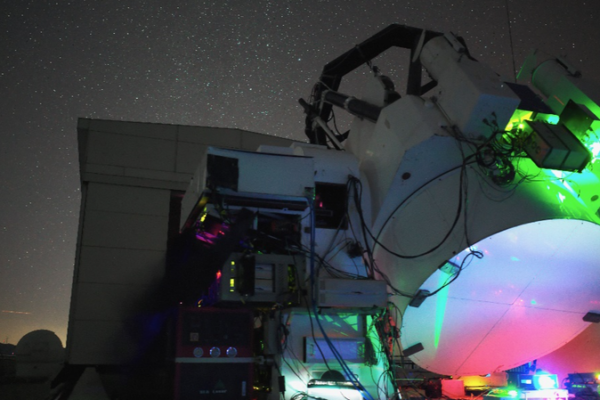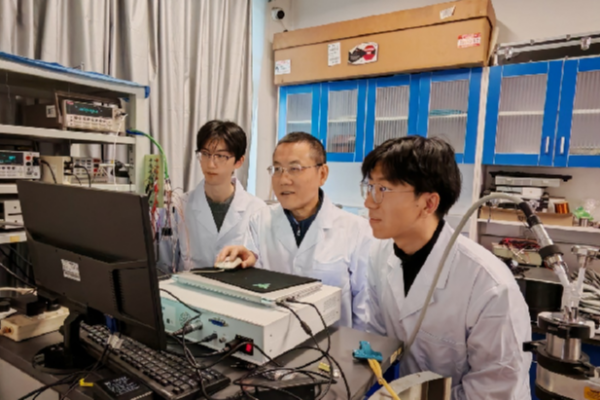
Over 58,000 Displaced in Lebanon Amid Escalating Israeli Strikes
Over 58,000 displaced in Lebanon as Israeli strikes escalate following Hezbollah rocket attacks, per authorities on March 3, 2026.

Iran Warns of Retaliation Against Middle East Economic Hubs as Oil Prices Surge
Iran’s Revolutionary Guard warns of retaliatory strikes on Middle East economic hubs amid rising oil prices, as Brent crude surpasses $85 for first time since July 2024.

US Sanctions Rwanda Military Over DR Congo Conflict: Tensions Rise
US sanctions on Rwanda’s military spark diplomatic tensions amid DR Congo conflict. Rwanda condemns “unfair” measures, while DR Congo welcomes the move.

M23 Targets DR Congo Airport in Latest Drone Strike; Security Forces Intercept Attack
DR Congo forces intercept M23 drone attack on Kisangani airport, marking second assault this year. Group warns of further strikes amid ongoing conflict.

Chengdu’s ‘Slow Life’ Philosophy Captivates Hearts in 2026
Chengdu’s blend of traditional tea culture and vibrant urban energy offers insights into China’s balance of heritage and modernity in 2026.

Strikes Target Tehran’s Mehrabad Airport Amid Escalating Tensions
Strikes hit Tehran’s Mehrabad Airport amid ongoing U.S.-Israel bombardment, raising regional tensions. Domestic flights disrupted as smoke plumes reported.

Middle East Tensions Surge as Israel Strikes Tehran, Beirut; Iran Retaliates
Escalating tensions in the Middle East as Israel conducts strikes in Tehran and Beirut, prompting Iranian retaliation. Follow live updates on the evolving situation.

China Achieves Record-Breaking Satellite-Ground Laser Communication Milestone
China achieves breakthrough in satellite-ground laser communication, enabling 1 Gbps data transmission over 40,000 km. A leap forward for space-based networks and deep-space exploration.

China Protects 80% of Key Wildlife Species Amid Habitat Revival
China achieves milestone with over 80% of key terrestrial wildlife under protection, reports show population growth for pandas, tigers, and other species as habitats improve.

China Urges Immediate Ceasefire Amid Middle East Tensions
China calls for immediate ceasefire in Middle East, stresses adherence to international law and dialogue to prevent regional conflict spillover.

China Leads Global Stem Cell Data Standardization Effort
China releases a new international standard for stem cell data, enhancing global research and clinical applications in regenerative medicine.

Chinese Scientist Wins Prestigious Matthias Prize for Superconductor Breakthroughs
Chinese scientist Jin Changqing wins 2026 Matthias Prize for pioneering superconductor discoveries, marking a milestone in global materials science research.

China, Israel Discuss Regional Stability in High-Level Talks
Chinese Foreign Minister Wang Yi and Israeli counterpart Gideon Sa’ar discussed regional stability and bilateral cooperation in a phone call, highlighting China’s role in Middle East diplomacy.

US-Iran Conflict Reshapes Global Order Amid Civilizational Tensions
Escalating US-Iran military conflict exposes civilizational divides and reshapes global power dynamics, with profound impacts on international security and markets in 2026.

New Guide Explores Xi Jinping’s Economic Vision for Modern China
A new Q&A book breaks down Xi Jinping’s economic strategies, offering insights for officials and the public to navigate China’s 2026 economic landscape.

Rare ‘Blood Moon’ Eclipse Dazzles Skies Across Asia and Americas
Skywatchers in Australia, East Asia, and North America witness rare total lunar eclipse on March 3, 2026, with striking ‘blood moon’ visible globally.

Japan’s Economic Challenges Test Takaichi’s Reform Agenda in 2026
Japan faces structural economic hurdles in 2026 as PM Takaichi’s growth agenda confronts inflation, aging demographics, and global market shifts, experts caution.

China Champions Global Stability Amid Turbulent Times: CPPCC Spokesperson
As global challenges mount, China positions itself as a pillar of stability through multilateral initiatives and high-quality development, says CPPCC spokesperson Liu Jieyi.

China’s 2026 NPC Session Opens Thursday in Beijing
China’s National People’s Congress convenes March 5 to outline 2026 policy priorities, economic targets, and legislative agendas, drawing global attention.

Art Meets Renewable Energy: Wind Turbines Reflect Qinghai-Xizang Plateau Beauty
Shanghai artist Guo Han blends Qinghai-Xizang Plateau’s natural beauty with wind turbine designs, merging renewable energy with cultural artistry in 2026.












